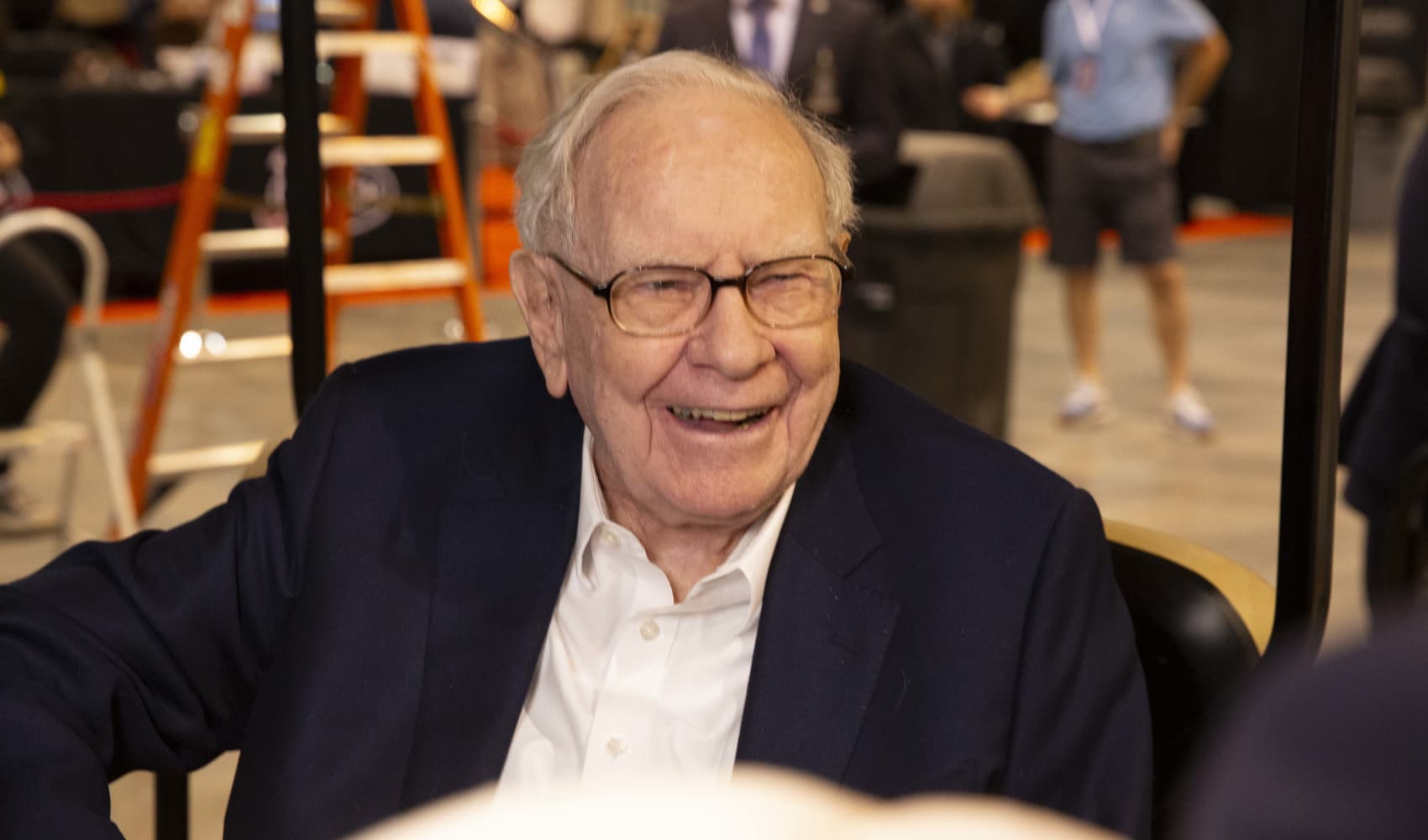
A man wearing a protective face mask is reflected on a stock quotation board at a brokerage, amid the coronavirus disease (COVID-19) outbreak, in Tokyo, Japan November 6, 2020.
This is CNBC's live blog covering Asia-Pacific markets.
Asia-Pacific markets rose on Tuesday as investors look ahead to highly anticipated talks between the U.S. and China as well as more economic data.
U.S. President Joe Biden and China's President Xi Jinping's will meet in-person in San Francisco later in the day, for the first time in about a year.
Japan's Nikkei 225 closed 0.34% higher at 32,695.93, while the Topix ended 0.37% higher at 2,345.29.
South Korea's Kospi closed 1.23% higher at 2,433.25. The Kosdaq ended 2.55% higher at 794.19, snapping a five-day losing streak.
In Australia, the S&P/ASX 200 ended 0.83% higher at 7,006.70, bouncing after two sessions of declines.
Hong Kong's Hang Seng index inched 0.06% higher in the final hour of trading, while mainland China's CSI 300 index added 0.07% to close at 3,582.06.
Money Report
Wall Street's benchmark S&P 500 index ended Monday's session near the flat line as traders prepared for the release of key U.S. inflation data.
It ended the day down 0.08%, while the Nasdaq Composite closed 0.22% lower. The Dow Jones Industrial Average advanced 0.16%.
Get a weekly recap of the latest San Francisco Bay Area housing news. Sign up for NBC Bay Area’s Housing Deconstructed newsletter.
Headline inflation, due Tuesday, is expected to have grown 3.3% from 12 months earlier, according to economists polled by Dow Jones. The metric is also forecasted to have advanced 0.1% from the prior month.
— CNBC's Lisa Kailai Han and Hakyung Kim contributed to this report.
Japan's yen eyes new multi-decade lows against euro, flirts with one-year low against dollar
The Japanese yen hovered near 15-year lows against the euro on Tuesday, trading at around 162.33 levels.
It remained at one-year lows against the dollar, last trading at 151.63 and inching close to 33-year lows if it falls below 151.94 per dollar.
The yen spiked during Monday's session, leading some market participants to speculate an intervention by the Bank of Japan. However, those speculations faded gradually.
"Yesterday, USD/JPY touched a new year to date high of 151.91 before dropping below 151.4 abruptly. We do not consider yesterday's moves were caused by intervention by the BoJ," analysts at Commonwealth Bank of Australia wrote in a note.
"If it was an intervention, the BoJ would certainly be disappointed about the size and duration of JPY strength."
— Shreyashi Sanyal
Kosdaq set to snap 5-day losing streak after wiping out recent gains
South Korea's small-to-midcap heavy Kosdaq index gained 2.23% by midday trading, eying to end a 5-day losing streak.
South Korean news agency Yonhap reported that President Yoon Suk Yeol said the short-selling ban will remain in effect until financial authorities devise measures to fundamentally prevent potential damage to retail investors.
Short selling is when a trader sells borrowed shares to buy back at a lower price and pocket the difference.
The index has shed 8% in the last five sessions, wiping out gains made on Nov. 6.
Last Monday, financial authorities in South Korea banned short selling until the end of June 2024.
— Shreyashi Sanyal
Australia November consumer confidence slides after rate hike
Australia's consumer confidence slid in November, according to a Westpac-Melbourne Institute survey.
The Westpac-Melbourne Institute index of consumer sentiment fell to 79.9 in November, down from 82 in October. The current reading reflects deeply pessimistic levels, according to the survey.
It notes that the Reserve Bank of Australia's decision to raise interest rates by 25 basis points to 4.35% last week, knocked about 6 points off confidence during the survey week.
"The RBA's November rate hike has put renewed pressure on family finances and reignited concerns about both the rising cost of living and the prospect of further rate rises to come," said Matthew Hassan, senior economist of Westpac Group.
"Responses over the survey week show sentiment was heading for a slight gain prior to the RBA move, responses amongst those surveyed before the decision consistent with an index read of just over 83."
The RBA had held interest rates steady four straight months until its meeting in November.
— Shreyashi Sanyal
CNBC Pro: Goldman Sachs: These 'conviction list' global stocks will benefit from a circular economy boom
Rising commodity prices, increased regulation and a growing recognition of sustainability benefits are set to be "key catalysts" of the circular economy, Goldman Sachs said, naming its "conviction list" stocks to play the theme.
Quoting estimates from McKinsey, Accenture and the United Nations Environment Program, the bank said that the economic benefits of the circular economy range from $2.9 trillion to $4.5 trillion by 2030.
"While regulators, corporates, and investors have placed much emphasis on achieving Net Zero emissions and Biodiversity goals, we believe the critical role a Circular Economy will play in solving for both has been overlooked, particularly as a lack of available resources threatens the speed, scale, and affordability of a clean energy transition," Goldman's analysts wrote in a Nov. 2 note.
CNBC Pro subscribers can read more here.
— Amala Balakrishner
CNBC Pro: Morgan Stanley picks global 'alpha' opportunities for November — and gives one about 60% upside
Asian markets have had a tumultuous year.
The MSCI Asia ex Japan Index plunged from its January high, losing around 12% since then.
Chinese stocks are especially volatile. Hong Kong's Hang Seng index is down around 12% in the year to date, while the Shenzhen Component has fallen over 9%.
Those keen on investing in Asia in the face of such uncertainty can consider Morgan Stanley's selection of Asian stocks it calls "alpha" opportunities for November.
CNBC Pro subscribers can read more here.
— Weizhen Tan
CNBC Pro: Morgan Stanley reveals its outlook for Asian stocks, says one major index is set to soar 11% in 2024
Morgan Stanley has revealed its bullish call on a major Asian stock index for 2024.
The investment bank expects the key stock index to rise 11% next year after rising by about 25% this year.
The Wall Street bank said the Asian country's currency will strengthen next year and boost equities exposed to international trade.
CNBC Pro subscribers can read more here.
— Ganesh Rao
Markets could still go higher but investors shouldn't get 'greedy,' Wells Fargo's Christopher Harvey says
Markets could still tick higher but investors should consider profit taking, according to Wells Fargo head of equity strategy Christopher Harvey.
"You could go higher, but if you go higher, we don't want people to be greedy," Harvey told CNBC's "Squawk on the Street" on Monday. "Take some profits [and] be a little bit more defensive."
Harvey added that he remains focused on large caps stocks, and noted that small caps "have a difficult time getting out of their own way" in the current economic environment.
— Brian Evans
Oil settles higher as OPEC dismisses demand concerns
Oil prices settled higher on Monday after OPEC dismissed concerns that demand is slowing.
Brent crude contracts for January rose $1.09, or 1.34%, to settle at $82.52 a barrel, while West Texas Intermediate contracts for December rose $1.09, or 1.41%, to settle at $78.26 a barrel.
Oil futures sold off last week as traders dismissed the risk of a broader Middle East war and started to worry that a fall in exports out of China could signal an economic slowdown that will hit crude demand.
But OPEC dismissed those fears in a report Monday, saying market fundamentals are strong with Chinese crude imports rising in October. The group of oil producers also pointed to strong economic growth in the U.S. and noted that the International Monetary forecasts the Chinese economy will grow 5.4% this year.
OPEC blamed the selloff on speculators betting that crude prices will fall.
-- Spencer Kimball
Geopolitical risk at its worst in 50 years, Baker Hughes CEO tells Financial Times
The world is facing the highest level of geopolitical risk in five decades as the Israel-Hamas war threatens to spread and the war in Ukraine grinds on, the CEO of one of the top oilfield services companies said.
Lorenzo Simonelli, the CEO of Baker Hughes, said people are comparing the current situation to the 1973 oil embargo, but he has never sign a higher level of risk.
"But in my tenure, no [the geopolitical climate has not been this fragile]," Simonelli told the Financial Times in an interview. "This is, from a political standpoint, very fluid."
The oil markets have largely dismissed the risk of an escalation in the Israel-Hamas war that could disrupt oil production in recent weeks. Simonelli said the conflict has not changed the outlook for supply and demand so far, but he warned that the risk of escalation remains.
"Base case is that this is hopefully contained within the situation that it is currently — sad as it is — and things continue to be tight," Hughes said. "But clearly, if there's a worsening and deterioration and an escalation of the situation, things will change."
-- Spencer Kimball
October's CPI data not expected to reveal any big surprises
October's consumer price index data, a key inflation gauge for the Federal Reserve and due to be released Tuesday at 8:30 a.m. ET, will shed some light on the U.S. economy before the December FOMC meeting.
"There is less than a 10% chance of a rate hike at that meeting, so it is unlikely that we will get market-moving data to shift an unchanged decision," said Jamie Dutta, market analyst at Vantage.
Dutta added that "there should be very modest growth in prices on a monthly basis and a further move down in the annual rate towards 3%."
Next year, the analyst expects prices to fall closer to the Fed's target as consumers begin feeling the pressure of tighter financial and credit conditions.
— Lisa Kailai Han






